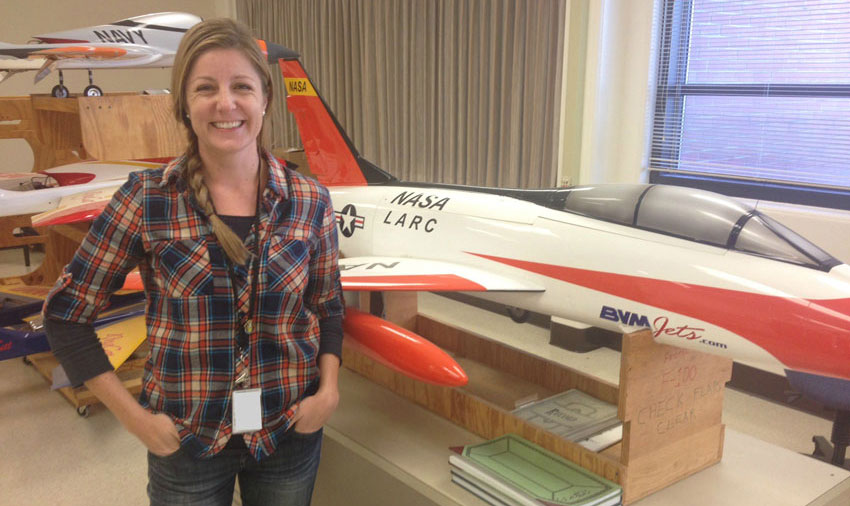Worldwide Student Jill Brown Bridges Communications, Aeronautics as NASA Project Manager

Brown’s skills, experience and education intersect daily in her work as a project manager for the UAS Operations Office at NASA’s Langley Research Center and CERTAIN (City Environment Range Testing for Autonomous Integrated Navigation) program in Virginia as a contractor. This year, Brown has been traveling around the country to present the administration’s risk-analysis modeling to help aid in developing regulatory framework that will allow for certain micro UAS to be operated over people. The aviation rulemaking committee recently issued its final report, which is now under review by the FAA.
“It’s an honor and dream come true to be working on one of the next innovations in aeronautics — integrating sUAS into our National Airspace,” she said. “I always thought only scientists and engineers could work at NASA. While that certainly is the bulk of the brilliant folks I get to work with, that’s not all there is to the workforce. My role at NASA started because of a few simple decisions I made that, like a pebble being thrown into a pond, had ripple effects I could have never imagined.”
While Brown says she’s always been an aviation geek, she studied humanities and screenwriting in college. Brown went on to work in marketing for The Walt Disney Company in California and eventually her own firm, Royally Awesome. She decided to seriously pursue her pilot’s license when she started her own company. Along the way, she discovered the opportunities the UAS industry has to offer and started her master’s degree in unmanned systems at Embry-Riddle Worldwide.
“I was very intimidated to come into this organization without a military background, ATP license or an engineering degree and worried people might think I wasn’t a good fit for the organization,” Brown said. “I’ve found it to be exactly the opposite of my fears from day one. People here have welcomed my unique skill set and advocated for me and what I have to offer. I feel incredibly lucky to work with such brilliant people who have welcomed me with open arms.”
And nearly a year later, she still remembers the day when her career path drastically changed course following a conversation with a NASA Office of Education recruiter about a graduate student research internship — which quickly turned into a full-time contracted position.
“The NASA staffer who called me said they specifically needed someone with pilot experience, a UAS background/understanding and who had writing/communications skills. Their engineering team had some brilliant advancements but were having a hard time translating that technical knowledge to a broader audience,” she recalled.
At NASA, Brown says she continues to use her marketing and communications skills every day. The organization and other technical aerospace companies need people with business development, marketing, and project management skills, she said.
“We tend to think of aeronautics as only being aeronautical engineers or pilots. I certainly did. Those skills are obviously invaluable, but there is merit and value to having the communications skills to organize and lead teams, promote programs and gain industry partners. It’s also important to communicate scientific research and aeronautical advancements in a way that’s more approachable and easy to understand for the general public, because NASA is a public agency designed to advance our wonderful country and culture,” she said. “If you can’t communicate the value of what you do to the population, that’s a real disservice to the work. I’ve always tried to write and communicate in a way that is approachable to all. I want people to get excited about science and aviation and unmanned systems. This is my passion, and I’m so grateful that every day I get to go to my office and do work that I think is creating a huge difference in the world.”
